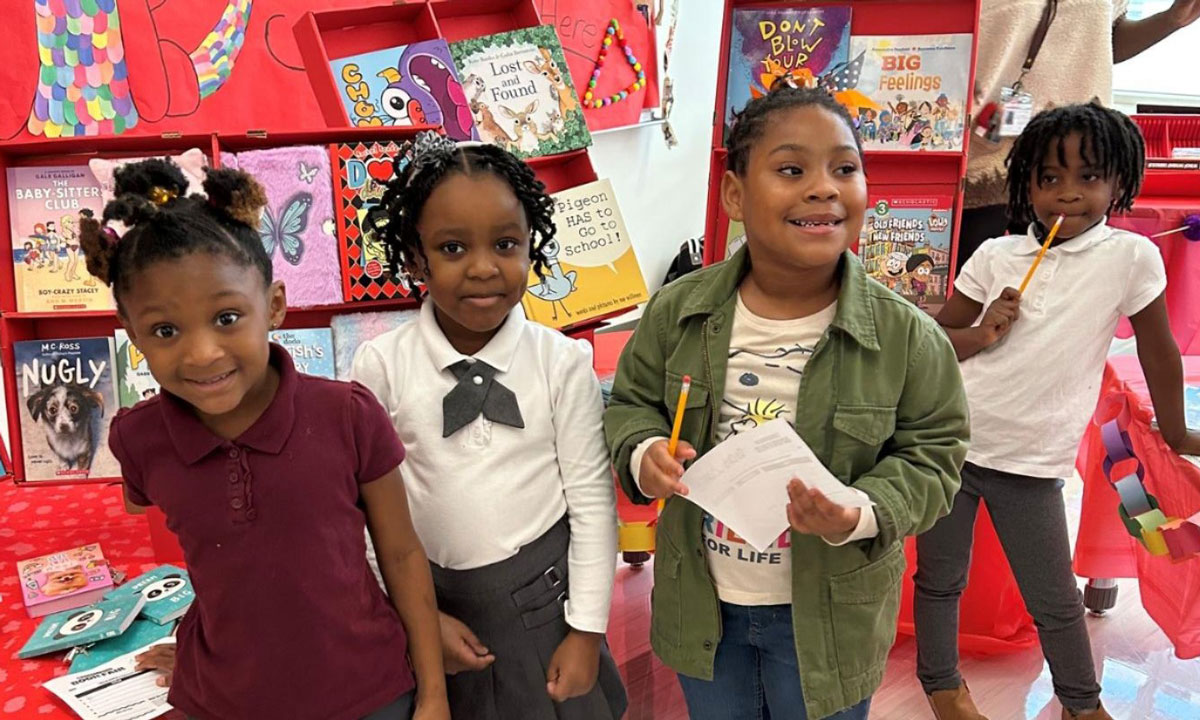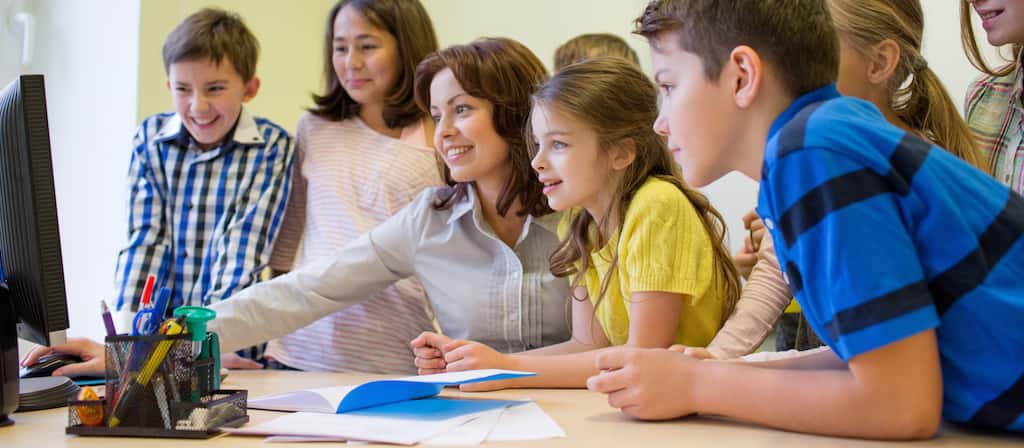Exploring the Benefits of Private College for Preschool and Grade School: What to Look For
Exclusive institutions can offer distinctive benefits for young learners in preschool and quality school. Moms and dads usually seek establishments that focus on smaller sized course sizes, fostering customized interest. Additionally, an enhanced educational program and extracurricular tasks can considerably enhance a child's academic experience. The exploration does not stop there. Understanding the deepness of community participation and the emphasis on character growth is necessary in making an informed choice. What particular components should parents focus on to guarantee a well-rounded education and learning?
Smaller Course Sizes and Individualized Attention
Lots of private colleges boast smaller course sizes, enabling for even more individualized focus for each trainee. This environment promotes an extra individualized learning experience, where instructors can customize their direction to meet the diverse needs of each youngster. Smaller course sizes make it possible for instructors to recognize pupils' toughness and locations for renovation more quickly, helping with targeted assistance and enriched knowing chances.
Furthermore, pupils commonly feel a lot more comfy participating in discussions, asking inquiries, and involving with their peers in a dense setup. This environment urges partnership and constructs self-confidence, advertising a sense of belonging among trainees. Teachers can likewise create stronger connections with their trainees, which can cause increased motivation and a greater determination to take academic dangers. Generally, the smaller sized course dimensions in personal institutions play a crucial duty in boosting the instructional experience, inevitably adding to much better academic outcomes for young students.
Boosted Curriculum and Extracurricular Opportunities
While public colleges typically adhere to conventional educational program, independent schools regularly offer boosted curricula that deal with a wider variety of interests and discovering styles. These institutions might give customized topics, such as foreign languages, arts, and advanced STEM training courses, which can enhance students' academic experiences. This tailored strategy enables children to discover their passions and succeed in locations that may not be emphasized in public education and learning.
In addition to the educational program, independent schools commonly boast a wide selection of extracurricular possibilities. From sports teams to dramatization clubs and robotics leagues, these tasks foster teamwork, creative thinking, and important reasoning skills. In addition, the schedule of after-school programs allows students to pursue extra rate of interests in a structured atmosphere. Overall, the improved curriculum and varied extracurricular options secretive institutions add to a versatile education, preparing trainees not just academically yet also socially and psychologically for future difficulties.
Stronger Neighborhood and Parental Involvement
A strong feeling of community and active adult involvement are characteristics of independent schools, cultivating an environment where students can flourish both academically and socially. Secretive instructional setups, moms and dads usually play an integral role, taking part in institution events, offering, and creating committees that form institution plans. This degree of interaction not only improves the institution experience for trainees however likewise produces enduring connections among families.
Personal institutions often urge open interaction in between parents and educators, enabling a collaborative approach to pupil growth. This collaboration permits tailored support, guaranteeing that each child's distinct needs are dealt with. In addition, the shared commitment to education fosters a society of shared regard and cooperation, promoting a positive school climate. Eventually, the emphasis on community and parental involvement in personal schools contributes greatly to an encouraging ambience that supports academic achievement and individual growth in young learners.
Emphasis on Character Growth and Values
Character advancement and values offer as foundational columns in personal school education and learning, shaping pupils into versatile individuals. Several personal establishments highlight an educational program that incorporates honest conversations, neighborhood solution, and character-building activities. This all natural method cultivates crucial qualities such as stability, strength, and empathy.

Accessibility to Advanced Resources and Facilities

In addition, private institutions regularly provide extracurricular tasks that utilize their advanced resources, such as art studios, music rooms, and athletic complexes. This access promotes a well-rounded education, urging pupils to create varied abilities and rate of interests.
In addition, smaller sized class dimensions typically found in private schools enable even more individualized direction, allowing teachers to utilize these resources effectively. Subsequently, trainees gain from boosted knowing opportunities, bring about a richer academic experience (Kindergarten). In general, access to advanced sources and centers plays an essential duty in forming the academic journey in exclusive institutions, offering benefits that can noticeably impact trainee outcomes
Often Asked Inquiries
How Do Exclusive Schools Manage Unique Education And Learning Demands?
Independent schools commonly deal with special education and learning needs through embellished education and learning strategies, smaller course sizes, and specialized team. They may provide customized support, sources, and programs to accommodate varied knowing needs, guaranteeing all students obtain suitable education and learning.
What Is the Typical Tuition Price for Independent Schools?
The ordinary tuition price for private schools varies considerably, commonly ranging from $5,000 to $30,000 annually, relying on variables like place, institution track record, and provided programs, with some elite colleges exceeding this array substantially. - Grade School
Are Private School Teachers Certified and Qualified?
Private school teachers typically hold accreditations and progressed levels, however requirements can vary by organization. Several independent schools focus on working with certified educators, ensuring they possess the abilities necessary to offer high quality education and learning to their trainees.
How Do Independent Schools Resolve Intimidation and Social Issues?
Independent schools frequently implement rigorous anti-bullying plans, motivate open communication, and cultivate an encouraging atmosphere. They may give therapy services and dispute resolution programs to attend to social problems successfully, advertising a favorable college society.
What Is the Common Class Arrange and School Hours?
Typically, independent schools run from 8 AM to 3 PM, with variations depending on the establishment. Class timetables usually include core topics in the morning and enrichment tasks or electives in the mid-day, promoting a well-rounded education and learning.
Exclusive colleges can use unique advantages for young learners in preschool and grade school. While public schools often adhere to conventional curricula, private institutions regularly offer boosted instructional programs that cater to a broader range of rate of interests and learning styles. In personal educational settings, moms and dads frequently play an indispensable role, taking part in college events, volunteering, and creating committees that form institution plans. Character growth and values offer as foundational columns in private college education, forming trainees right into versatile people. Exclusive schools typically prioritize little course dimensions, permitting teachers to cultivate personal connections with trainees.